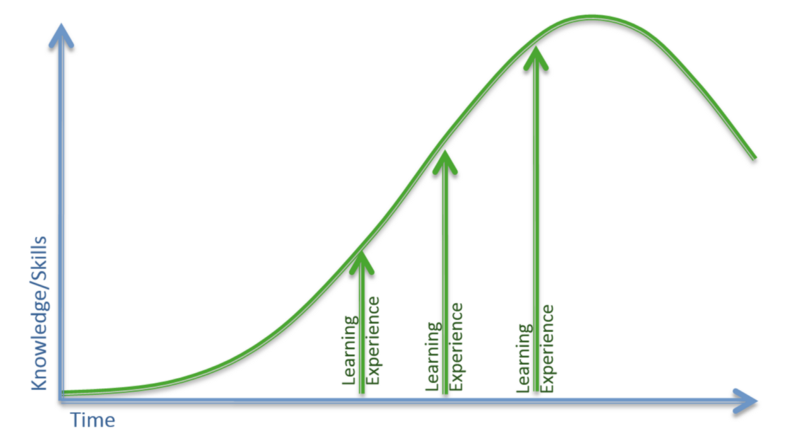
A lot of the work within Experience Design is to share understanding and support stakeholders to think differently. Enabling them to focus on root causes of problems, the value there is in solving those problems for the organisation, it's workforce and it's customers and how to focus on the outcome it will take to solve the problem for all.
This might take on a coaching role to guide them through exploring a problem and include different perspectives to make sure that a problem is fully designed out, from top to bottom and start to finish across the whole process or service that colleagues and customers are involved in.
Pairing and mentoring roles might be used to share knowledge within design, engineering and product teams. While a mix of mentoring and teaching might be used when working with universties and organisations your not part of. So as you can see this can take several different roles depending on the individual, team and how it's best to share that understanding and practical knowledge.
I'll take a look at these different roles and methods, as I'm often asked what the difference is between them and which one is most suitable for different scenarios.
The best way for me to articulate what a mentor is and how they are different to a coach or teacher is probably to relate to a Star Wars.
There is a lot of information available around how to be a successful mentor. A mentor will often build a personal connection with you, to understand how you think and feel in examples that you'are discussing. They will be a key person that will listen, be compassionate and empathetic to support you with real life challenges and enable you to make the most of your potential. They might share their experiences and get you to think differently about a situation or challenge, to enable you to develop suitable solutions. Often mentors not only care about the individuals, but also the industry that you're working in and be engaged and actively participate within the industry you're working. This will help bring a new perspective or ‘fresh set of eyes’ to work and challenges ahead and enable you to see the bigger picture.
On the other hand, a mentor is more like a friend to guide you. They may not be an expert but help support you to explore something a find a path to find the right answer, from your shared experiences. Think Yoda and Luke Skywalker. The mentor is the expert in a certain area and is willing to share their knowledge, expertise and experiences • The mentor is giving the mentee advice and guidance on a specific area • Takes a less formal format • Focuses on career and personal development
The best way to think about a coach and how they are different to a mentor or a teacher is probably within a sporting environment. coach may not be the expert in the area of focus. • The coach uses questioning techniques to develop the coachee • Takes a more formal format • Focus is on development relating to specific goals
A teacher instructs you on a subject matter based on a set of predefined criteria. Most of the time, the main goal of a teacher is to make sure that their students get great grades. This is very structured way of supporting personal development with a syallabus to guide what needs to be learnt and what will be tested within an end assessment and what the marking criteria may be.
Sharing knowledge, showing how to do something or explaining the theory of doing something.
Subject matter expert, who hopefully has observed the process in detail a number of times, has actively taken part and played a key role in the process and then has the knowledge, skill and expertise to be able to share that with others.
Teaching is best used when a depth of knowledge in a specific area, process, tool, technique of framework is needed and time can be dedicated to learning this and then you're able to step away and apply this to your daily life or work. Not forgetting the challenge with any learning curve is that if the knowledge or skill isn't put into practise then the learning experience can be easily forgotten.

If you’re looking to build a meaningful relationship based on growth and progress, look for a mentor.
If you want to further your knowledge on a topic to get a certification, get a teacher and learn a course.